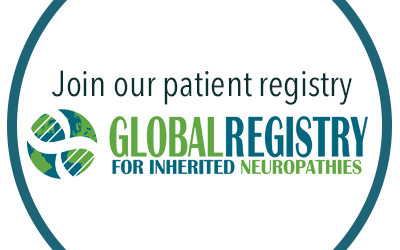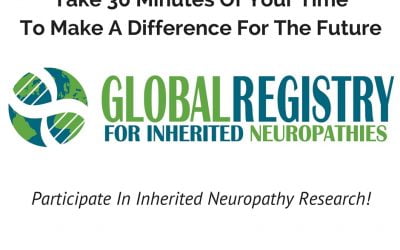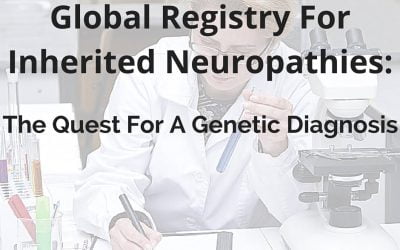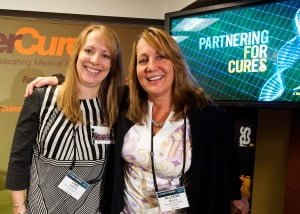
Welcome to Global Registry for Inherited Neuropathies (GRIN)
Click button above to request an account
Click button above and login.
Click button above, then click “Forgot Password”. If you don’t receive an email within 5 minutes, click on “New to GRIN” button above.
Empower CMT research – it starts with your story!
**Why Should You Join GRIN?
The answer is simple – we need YOU!
By participating in GRIN, you play an essential role in driving breakthrough therapies for Charcot-Marie-Tooth (CMT). Without your input, researchers won’t have the critical patient data needed to develop new drugs, gene therapies, and clinical trials. You hold the key to unlocking new possibilities in patient-focused research.
As GRIN grows, so do our insights. The more you share, the faster we can accelerate progress. Sharing your experience with CMThelps scientists understand why people experience different symptoms and allows them to focus on what matters most to patients. Your unique information could reveal patterns between specific mutations and symptoms, leading to tailored treatments for different types of CMT.
By completing your profile, your anonymous survey response will drive research and help advance Charcot-Marie-Tooth research and design future clinical trials. You’ll be first to know when you’re eligible for trials and contribute to studies that enhance therapy development alongside our industry partners. Your information will guide healthcare providers, improving diagnosis and care for patients like you.
Anyone diagnosed with CMT can join GRIN. Your information is kept secure and confidential, and only approved researchers and partners will have access to your de-identified data.
Together, we can change the future of CMT. Let’s take the next step—join GRIN today!
Choose your path to GRIN
As GRIN grows, we exponentially gain greater insights from you as patients to help accelerate therapies for Charcot-Marie-Tooth (CMT) and Inherited Neuropathies. This is an incredible opportunity for you to participate in CMT and Inherited Neuropathies Patient-Focused Research.
Your vital data allows for researchers to study why individuals experience different symptoms and address what is most important to patients when thinking about drug development. Scientists can also learn how a particular mutation type may lead to different or unique symptoms helping us to develop treatments for all types of CMT and Inherited Neuropathies.
By completing your profile, your de-identified information will be utilized to advance research and support clinical trial designs. As a registrant, you will be informed when you may be eligible for clinical trials.
These Patient-Reported Outcomes Studies will enhance therapy development in collaboration with our industry partners. By informing Healthcare Providers and others with your critical data, we can work to improve diagnosis and enhance patient care.
Anyone diagnosed with CMT or other Inherited Neuropathies can join GRIN. Your information is always kept confidential: only approved research investigators and industry partners can see your de-identified information.
If you are already a participant, we still need you! It’s important to update your profile and participate in many of our Patient-Reported Outcomes Research Studies.
With all of the current positive research momentum, there is no better time than right now to join GRIN! Become a part of the effort to find the treatments and cures for all Inherited Neuropathies!
HNF Presents Research Findings at Three Prestigious Conferences
Read more about the research findings presented at these conferences.
HNF Launches Online Clinical Study
HNF launches GRIN with 4 online clinical studies that are important as we continue with our therapy development pipelines.
Join GRIN! About The Global Registry for Inherited Neuropathies
Help us to improve outcome measures, develop biomarkers and improve patient care by joining the Global Registry for Inherited Neuropathies
10 Ways Participating In GRIN Helps Support CMT/IN Research
HNF’s Global Registry for Inherited Neuropathies (GRIN) is one of our initiatives that supports our commitment and dedication to developing treatments and discovering cures for CMT and other INs.
Top Ten Ways Participating in GRIN Helps Support CMT/IN Research
HNF’s Global Registry for Inherited Neuropathies (GRIN) is one of our initiatives that supports our commitment and dedication to developing treatments and discovering cures for CMT and other INs.
Global Registry For Inherited Neuropathies: Your Questions Answered
Why are we asking you to join our registry? It’s simple. Without you, researchers won’t have the essential patient information to develop the drugs, gene therapy, and clinical trials for Charcot-Marie-Tooth and other inherited neuropathies.
This is why the Hereditary Neuropathy Foundation (HNF) created the Global Registry for Inherited Neuropathies (GRIN). The registry collects the historical, clinical, and genetic information on patients diagnosed with the various forms of inherited neuropathies to help advance therapy development for these debilitating disorders. We understand there may be some hesitation joining our registry. To help mitigate any concerns, we’ve have the answers to your most common questions.
Global Registry For Inherited Neuropathies: The Quest For A Genetic Diagnosis
The Hereditary Neuropathy Foundation (HNF) and Hannah’s Hope Fund (HHF) have partnered together to create the Global Registry For Inherited Neuropathies (GRIN).
Global Registry for Inherited Neuropathy (GRIN) Vs the Rare Disease Clinical Research Network (RDCRN)
The clinical Global Registry for Inherited Neuropathy (GRIN) and the Rare Disease Clinical Research Network (RDCRN) contact registry are very different types of databases. As a contact registry, the RDCRN collects limited data on patients with CMT. For example, the...
“Fighter Mom’s” Join Forces
Lori Sames and her husband Matt formed Hannah’s Hope Fund (HHF) following their youngest daughter’s diagnosis of Giant Axonal Neuropathy (GAN) in 2008. GAN is the most rare, and one of the most severe, forms of Inherited Neuropathy.









